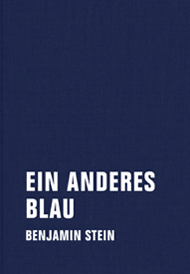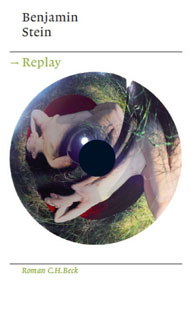
Rav Joseph B. Soloveitchik (1903-1993)
Religion is not, at the outset, a refuge of grace and mercy for the despondent and desperate, an enchanted stream for crushed spirits, but a raging, clamorous torrent of man’s consciousness with all its crises, pangs, and torments.
••• »Struggling with God« ist der Titel eines US-Blogs, über das ich – sicher nicht zufällig – gerade gestolpert bin. Obiges Zitat stammt aus einem Buch des großen Rav Joseph B. Soloveitchik.
Gut, dass mich jemand erinnert an die Kol D’Mama Daka – diese Stimme einer feinen Stille…
Taken directly from the Bible (Kings I 19:12) , I have always found that although not useful when going to the Makolet (grocery store), it is one of the most beautiful phrases in the Bible. »Kol« is a voice (Exodus 19:19). »Dak« means thin (Isaiah 29:5), and »Damam« (Exodus 15:16) is silence or stillness. The actual verse in Kings relates to Elijah the Prophet’s dramatic meeting with God, the sounds, and the ensuing silence. Putting these unusual words together, you can imagine what a wisp of a voice of silence could be. Nothing more needs to be said.
Lassen wir Soloveitchiks Worte mal in der englischen Übersetzung wirken…
Religion is not, at the outset, a refuge of grace and mercy for the despondent and desperate, an enchanted stream for crushed spirits, but a raging, clamorous torrent of man’s consciousness with all its crises, pangs, and torments. Yes, it is true that during the third Sabbath meal at dusk, as the day of rest declines and man’s soul yearns for its Creator and is afraid to depart from that realm of holiness whose name is Sabbath, into the dark and frightening, secular workday week, we sing the psalm »The Lord is my shepherd; I shall not want. He maketh me to lie down in green pastures; He leadeth me beside the still waters« (Ps. 23), etc., etc., and we believe with our entire hearts in the words of the psalmist. However, this psalm only describes the ultimate destination of homo religiosus, not the path leading to that destination. For the path that eventually will lead to the »green pastures« and to the »still waters« is not the royal road, but a narrow, twisting footway that threads its course along the steep mountain slope, as the terrible abyss yawns at the traveler’s feet. Many see »the Lord passing by; and a great and strong wind rending mountains and shattering rocks… and after the wind an earthquake… and after the earthquake a fire« but only a few prove worthy of hearing »the still small voice« (I Kings 19:11-12). »Out of the straights have I called, O Lord« (Ps. 118:5). »Out of the depths I have called unto Thee, O Lord« (Ps. 130:1). Out of the straits of inner oppositions and incongruities, spiritual doubts and uncertainties, out of the depths of a psyche rent with antinomies and contradictions, out of the bottomless pit of a soul that struggles with its own torments I have called, I have called unto Thee, O Lord.
And when the Torah testifies that Israel, in the end, would repent out of anguish and agony… »In your distress when all these things are come upon you… and you will return unto the Lord your God« (Deut. 4:30), it had in mind not only physical pain, but also spiritual suffering. The pangs of searching and groping, the tortures of spiritual crises and exhausting treks of the soul purify and sanctify man, cleanse his thoughts, and purge them of the husks of superficiality and the dross of vulgarity. Out of these torments there emerges a new understanding of the world, a powerful spiritual enthusiasm that shakes the very foundations of man’s existence. He arises from the agonies, purged and refined, possessed of a pure heart and a new spirit. »It is a time of agony unto Jacob, but out of it shall he be saved« (Jer. 30:7) – i.e., from out of the very midst of the agony itself he will attain eternal salvation and redemption. The spiritual stature and countenance of the man of God are chiseled and formed by the pangs of redemption themselves.
Rav Joseph B. Soloveitchik, from: »Halakhic Man«
Übersetzung: Lawrence Kaplan






Am 28. Juli 2009 um 17:11 Uhr
Eines verstehe ich nicht ganz, Benjamin. Wenn Du innerhalb Deiner religiösen Tradition Lehrer hast, die solches schreiben, weshalb haderst Du dann damit? Ich würde viel viel darum geben, gäbe es christliche Theologen mit diesem Tiefblick.
Am 28. Juli 2009 um 17:21 Uhr
Das liegt wohl daran, dass es hier an Rabbinern fehlt, die man ins Vertrauen ziehen könnte und die einem eine solche Lektüre empfehlen würden. Ich werde mich andernorts auf die Suche machen…
Nicht schlecht, der Herr Soloveitchik, gell?
Am 28. Juli 2009 um 17:30 Uhr
Nicht schlecht, ja. Er spendet Trost indem er sagt, dass Religion nicht dazu da ist, Trost zu spenden.
Am 28. Juli 2009 um 17:39 Uhr
Eben.